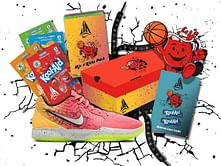
Shark Tank is an American reality television show in which entrepreneurs pitch their business ideas to a panel of "shark" investors, who then decide whether or not to invest in their company.
The "sharks'’ on the show are successful business people and investors, and the format of the show allows viewers to see the process of how a business idea is developed and funded. During the show, entrepreneurs present their products or services, business models, and financial projections, and then answer questions and negotiate with the sharks. The show provides a unique opportunity for entrepreneurs to receive funding and mentorship from sharks, and it also provides a fascinating look at the world of startups and investment.
Shark Tank has been on air since 2009 on ABC and is known for its entertaining mix of business strategy and personal drama. The show has been praised for its educational value, as it provides insights into the entrepreneurial process, and it has also been criticized for its emphasis on entertainment over accuracy. Regardless of its flaws, Shark Tank has become a cultural phenomenon and remains one of the most popular shows on television.
Who are the Sharks?

The "sharks" on Shark Tank are a panel of investors who listen to pitches from entrepreneurs and decide whether to invest their own money in the business. The sharks are some of the most successful and well-known businesspeople and investors, including:
Mark Cuban: billionaire entrepreneur, investor, and owner of the NBA's Dallas Mavericks.
Barbara Corcoran: real estate mogul and businesswoman.
Kevin O'Leary: businessman, investor, and television personality.
Lori Greiner: inventor, entrepreneur, and investor.
Daymond John: founder of the clothing company FUBU and branding consultant.
Robert Herjavec: cybersecurity expert and entrepreneur.
Guest sharks: Some episodes of the show feature guest sharks who temporarily take the place of one of the regular sharks. Guest sharks have included entrepreneurs, investors, and business leaders.
The sharks can choose to invest in the businesses they see potential in, either individually or as a group. They often provide mentorship and valuable business advice in addition to funding.
How to get on Shark Tank?

To pitch your business idea on Shark Tank, you can follow these steps:
Prepare your pitch: Develop a clear and concise pitch that showcases your business idea, product or service, target market, financial projections, and why you think it has potential for success.
Submit an application: Submit an online application to the show's production team, including a brief description of your business, your contact information, and a video of your pitch. The application process usually opens a few months before the start of each season.
Wait for a response: If your application is selected, the show's producers will contact you for further information and to schedule an in-person or virtual pitch.
Make your pitch: If you are selected to participate in the show, you will have the opportunity to make your pitch to the sharks in person or virtually. You should be prepared to answer questions, negotiate with the sharks, and sell your business idea.
Wait for the airing: If your pitch is selected to be part of the show, you may have to wait several months before it airs.
It's important to keep in mind that the competition is fierce, and only a small percentage of applicants are selected to participate in the show. However, even if you don't get a deal on the show, the exposure and experience can be valuable for your business.
What are the successful businesses of Shark Tank?

There have been many successful businesses that have appeared on Shark Tank and received investments from the sharks. Here are a few examples:
Scrub Daddy: A non-scratch scrubber made of a unique material that changes texture based on the temperature of the water. The company received a $200,000 investment from Lori Greiner in exchange for 20% of the company.
Tipsy Elves: A holiday-themed clothing company that received a $100,000 investment from Robert Herjavec in exchange for 10% of the company.
Groovebook: A monthly subscription service that sends its customers a curated selection of high-quality photo prints. The company received a $150,000 investment from Robert Herjavec in exchange for 2.5% of the company and a $1 royalty on every subscriber until the investment was repaid.
Squatty Potty: A plastic stool that helps people achieve a more natural and comfortable position while using the toilet. The company received a $150,000 investment from Robert Herjavec in exchange for 10% of the company.
These are just a few examples of businesses that have received investments on Shark Tank and gone on to be successful. However, it's important to keep in mind that not all businesses that appear on the show are successful, and not all investments made on the show result in a profitable return.









